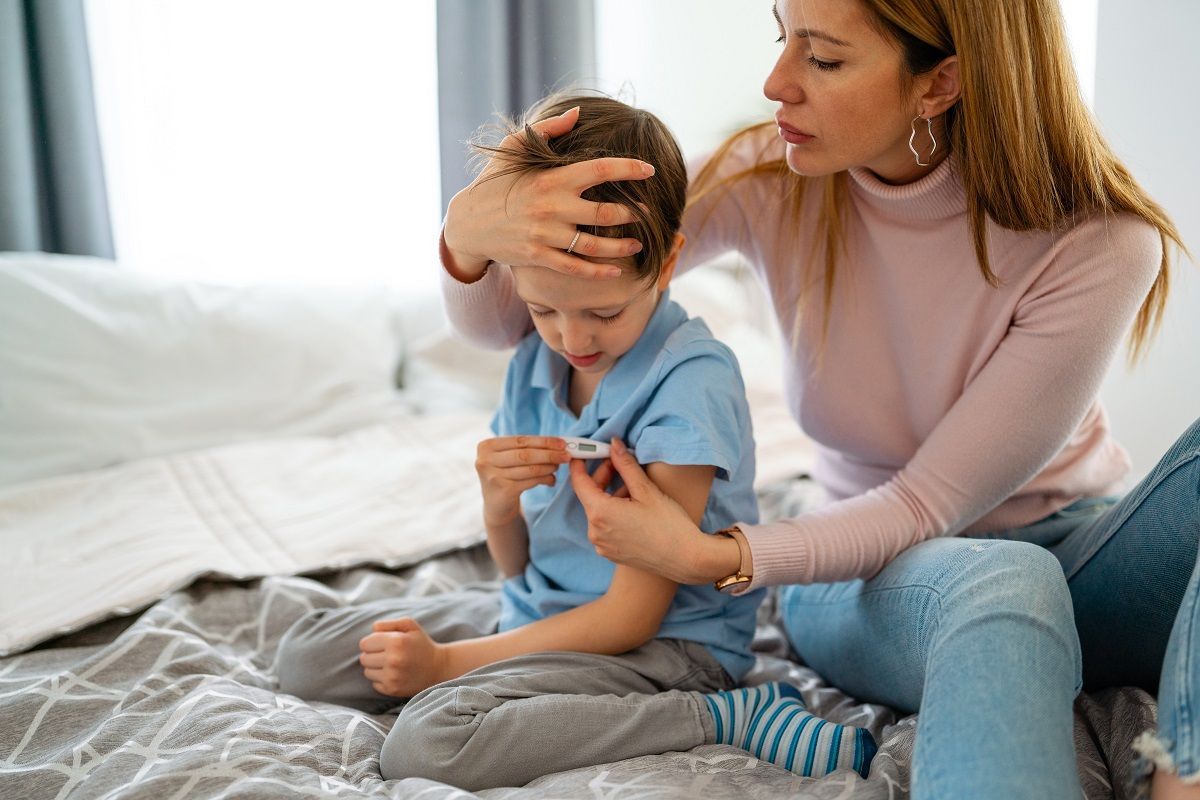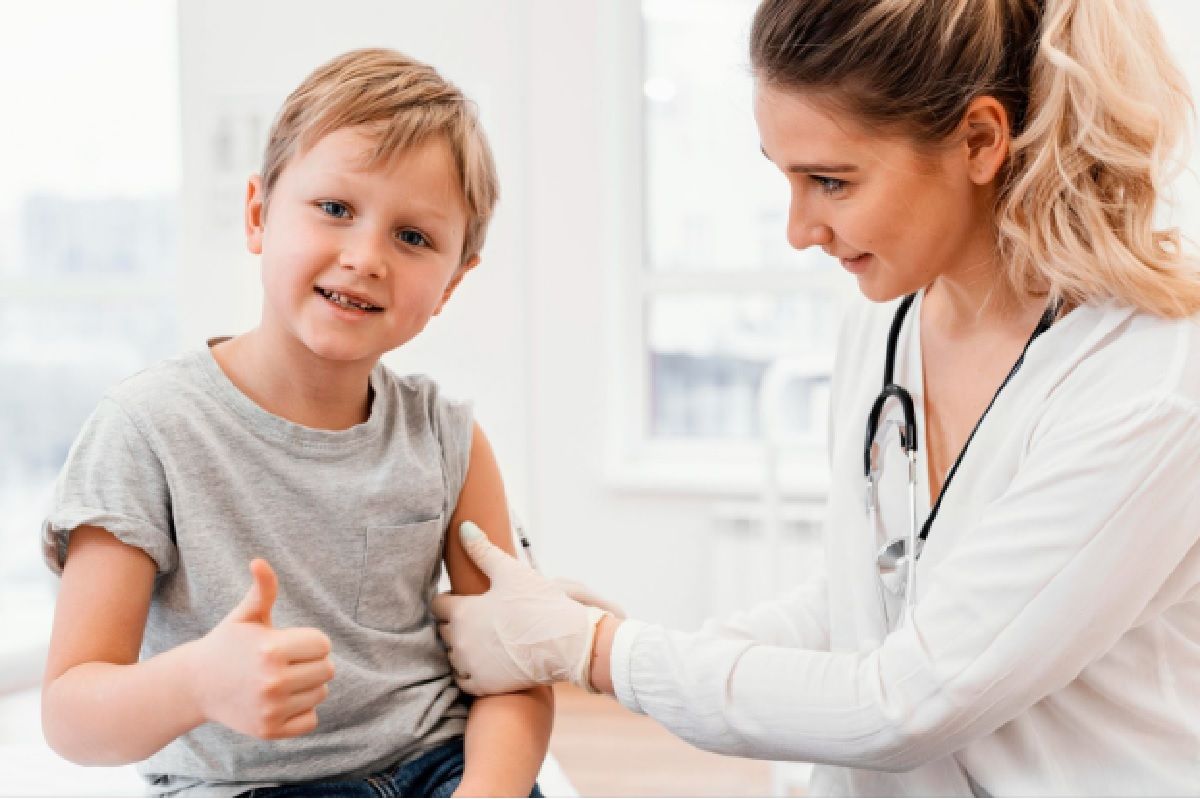
We Proudly Accept Medi-Cal and Medicare
Write your caption hereButton
Now Accepting Walk-ins!
Write your caption here

We Proudly Accept Medi-Cal and Medicare
Write your caption hereButton
Now Accepting Walk-ins!
Write your caption here

Any parent’s heart would break watching their child uncomfortable, covered in itchy red spots, and battling a high fever. The distress can be overwhelming, leaving you fumbling for ways to alleviate their suffering. As parents, we strive to protect our children from various harms and diseases, especially those that are as uncomfortable as chickenpox.
If your child is currently suffering from chickenpox, it might mean sleepless nights, your kid constantly needing you, and your household at risk.. This disease, caused by the varicella-zoster virus is highly communicable and can easily spread within the family with multiple children. While it’s very overwhelming, don't worry—you're not alone! Take a deep breath, and let's explore essential tips and tricks to make this experience as comfortable and stress-free as possible! At AllMed Medical Center, we are your quality pediatric partners in keeping your child well and healthy. Our Sacramento community clinic doctors are ready to provide the healthcare services you deserve.
Give Your Child Maximum Protection
[Schedule a Consultation Today]
Here are our vital tips to help you manage the symptoms of chickenpox and prevent their spread, allowing you to give your child the care and attention they need.
Understanding Chickenpox
Chickenpox, caused by the varicella-zoster virus, typically lasts about 5 to 10 days from the onset of symptoms to the resolution of the rash. The illness often begins with flu-like symptoms such as fever, fatigue, and headache, followed by an itchy rash that progresses from red spots to fluid-filled blisters. These blisters eventually crust over and heal.
While chickenpox virus is generally a mild condition, it can pose a significant threat to certain populations, including infants, adults, pregnant women, and individuals with weakened immune systems. In these high-risk groups, chickenpox can lead to severe complications such as bacterial skin infections, pneumonia, and encephalitis (brain inflammation), and in some cases, it can be fatal. This underscores the crucial need for prevention and vaccination.
Chickenpox is highly contagious and spreads through:
- Direct contact: Touching the fluid from the blisters of an infected person.
- Airborne transmission: Inhaling respiratory droplets released when an infected person coughs or sneezes.
- Indirect contact: Touching objects or surfaces contaminated with the virus.
Chickenpox Symptoms

Chickenpox typically begins with symptoms similar to cold or flu, followed by the characteristic rash. Here are the common signs of chickenpox:
- Fever
Chickenpox often starts with a mild to moderate fever, usually between 100.4°F (38°C) and 102°F (38.9°C).
- Fatigue
Children may feel unusually tired or lethargic.
- Headache
Headaches are expected during the initial stages of chickenpox and may persist throughout the illness.
- Loss of Appetite
It is common for children with chickenpox to have a reduced appetite due to not feeling well.
- Sore Throat
The virus affects the respiratory system, potentially leading to a sore throat and discomfort while swallowing.
- Muscle Aches
Some children may complain of muscle or joint pain, similar to flu symptoms.
- Rash
The primary symptom of chickenpox is a red, itchy rash. The chickenpox spots begin as small, red bumps, quickly developing into fluid-filled blisters. These blisters may appear anywhere on the body, including the face, scalp, trunk, arms, legs, and even inside the mouth.
- Blisters
The fluid-filled blisters eventually burst and form crusts, which then scab over and heal. New crops of blisters may continue to appear for several days, leading to an extended period of discomfort.
It's essential to identify these signs and symptoms and seek prompt medical advice if you suspect your child has chickenpox, especially if they are at higher risk for complications or if symptoms are severe.
Complications of Chickenpox
If left untreated, chickenpox can lead to severe complications, particularly in high-risk groups such as children and people with compromised immune systems.
Possible complications include:
- Bacterial infections of the skin
- Pneumonia
- Encephalitis (inflammation of the brain)
- Dehydration (due to high fever and inadequate fluid intake)
Additionally, severe infections can result in sepsis, a life-threatening response to infection. Prompt medical attention and appropriate care are essential to prevent these potentially severe outcomes.
Essential Tips for Parents
Although chickenpox brings multiple challenges, the disease is highly manageable if you know the proper methods to do so. Here's our expert tips that you can follow:
- Vaccination
Ensure your child receives the varicella vaccine as part of their routine immunization schedule. Vaccination significantly reduces the risk of contracting chickenpox and its complications.
- Isolation and Rest
Keep your child at home until all blisters have crusted over to reduce the risks of spreading the virus to others. Ensure they are well rested to aid in their recovery.
- Relieve Itchiness
To alleviate itching, use calamine lotion or antihistamines (under the guidance of a healthcare professional). Trim your child's fingernails to prevent scratching, which can lead to infection or scarring.
- Maintain Hygiene
Encourage frequent handwashing for the infected child and other family members to prevent the spread of the virus. Dispose of used tissues properly and sanitize surfaces regularly.
- Comfort Measures
Offer cooling, non-irritating foods and fluids to soothe a sore throat caused by chickenpox. Dress your child in loose-fitting, comfortable clothing to minimize discomfort from the rash.
- Quarantine Contacts
Inform the parents of your child's playmates or classmates about the diagnosis so they can watch for their children's symptoms and take necessary precautions.
- Avoid Aspirin
Do not give aspirin or aspirin-containing products to children with chickenpox, as it may increase the risk of Reye's syndrome, a rare but severe condition.
- Emotional Support
Reassure and comfort your child, as illness can be frightening for them. Engage in less physically demanding tasks, such as reading or watching movies together, to help distract from discomfort.
- Consult a Healthcare Professional
Consult your doctor if your child has a high fever, difficulty breathing, signs of dehydration, or if the rash worsens. Follow your healthcare provider’s recommendations regarding medication, follow-up appointments, and when your child can safely return to school or daycare. To ensure your child's protection against chickenpox, you can talk to AllMed Medical Center's pediatric doctors.
No More Chickenpox, We Got This!

While chickenpox can be challenging for children and parents, implementing these essential tips can help alleviate symptoms, manage complications, and reduce the risk of spreading the virus. Most children recover without complications and can return to normal activities with proper care and precautions. However, always consult a healthcare professional if you have concerns about your child's condition or if complications arise.
Get Maximum Protection Against Chickenpox!
AllMed Medical Center is a reliable urgent care clinic in Sacramento, Texas that provides all your healthcare needs.
We offer primary care, family medicine, internal medicine, and pediatrics. Our pediatricians use proven, evidence-based treatment methods to ensure your child's health against chickenpox and other health concerns.
Maximize Your Child’s Protection from Chickenpox
AllMed Medical CentersServing
Greater Sacramento
Allmed Medical Center | All Rights Reserved.









